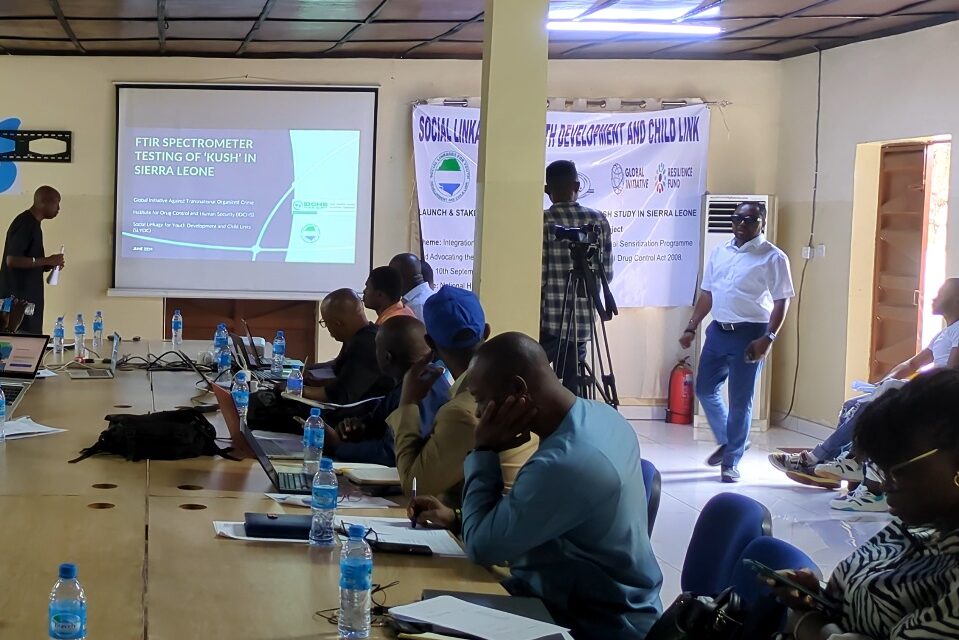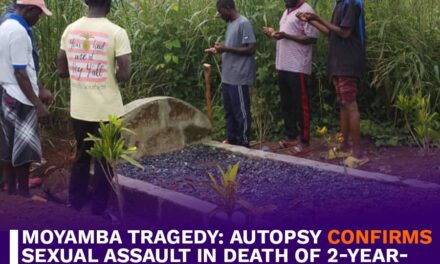By Kelfala Kargbo
Freetown, 12th September 2025- Social Linkages for Youth Development and Child Link (SLDCL) has officially launched its latest study on the synthetic drug Kush, hosting a stakeholder orientation with civil society groups and government agencies to present community-level testing findings and policy recommendations.
Held at the National AIDS Secretariat in Freetown, the event centred on the theme: “Integration of Community Testing Findings into the National Sensitization Programme and Advocating the Integration of Harm Reduction into the National Drug Control Act of 2008.” The message was clear: government must act on the report’s findings to curb the growing Kush crisis.
The launch comes amid Sierra Leone’s ongoing battle with Kush, a synthetic drug that has ravaged communities across the subregion. In April 2024, President Julius Maada Bio declared Kush a National Health Emergency after disturbing videos of young people lying lifeless on the streets flooded social media.
Director General of the National AIDS Secretariat, Abdulrahman C. Sesay, presented an overview of the report, stressing its relevance to law enforcement and health agencies. He warned of Kush’s devastating impact on public health and infrastructure, particularly among vulnerable populations.
“People living with HIV who are drug users are three to four times higher than the national prevalence rate of 4.2% from the last IDTHL report we did,” Sesay revealed.
He called for stronger collaboration across sectors to address the intersection of drug use and HIV.
“Drug users living with HIV are alarming. It is important that we collaborate and integrate our efforts to address the issue of drugs in our society,” he added.
Habib Kamara, Executive Director of SLDCL, presented key findings from the study, including the international origins of Kush’s chemical components. He cited importation routes from China, the Netherlands, and the UK via maritime, air, and postal courier services.
“We did a first FTRI test of nitazenes and a second test at a laboratory in France, which proved that China, Netherlands, and UK import the substances,” Kamara explained.
The report found that synthetic cannabinoids accounted for 17% of samples, while nitazenes, potent synthetic opioids, were identified as the primary active ingredient in 72% of cases.
Representing the Sierra Leone Police, Dr. Bangura, Director of Medical Services, highlighted the drug’s link to rising violence and petty crime. He stressed that users should be seen not as criminals, but as victims of circumstance.
Representing Dr. Gineka, Dr. Godswill Agada, Assistant Technical Director at World Vision International Sierra Leone, called for urgent action to disrupt supply chains and promote behavioral change among rehabilitated users.
“We must cut down the supply routes and reintegrate behavioral change strategies. Prevention and criminalisation must go hand in hand,” he urged.
The launch marks a critical step in Sierra Leone’s fight against Kush, with stakeholders pushing for harm reduction to be formally integrated into national drug policy.









